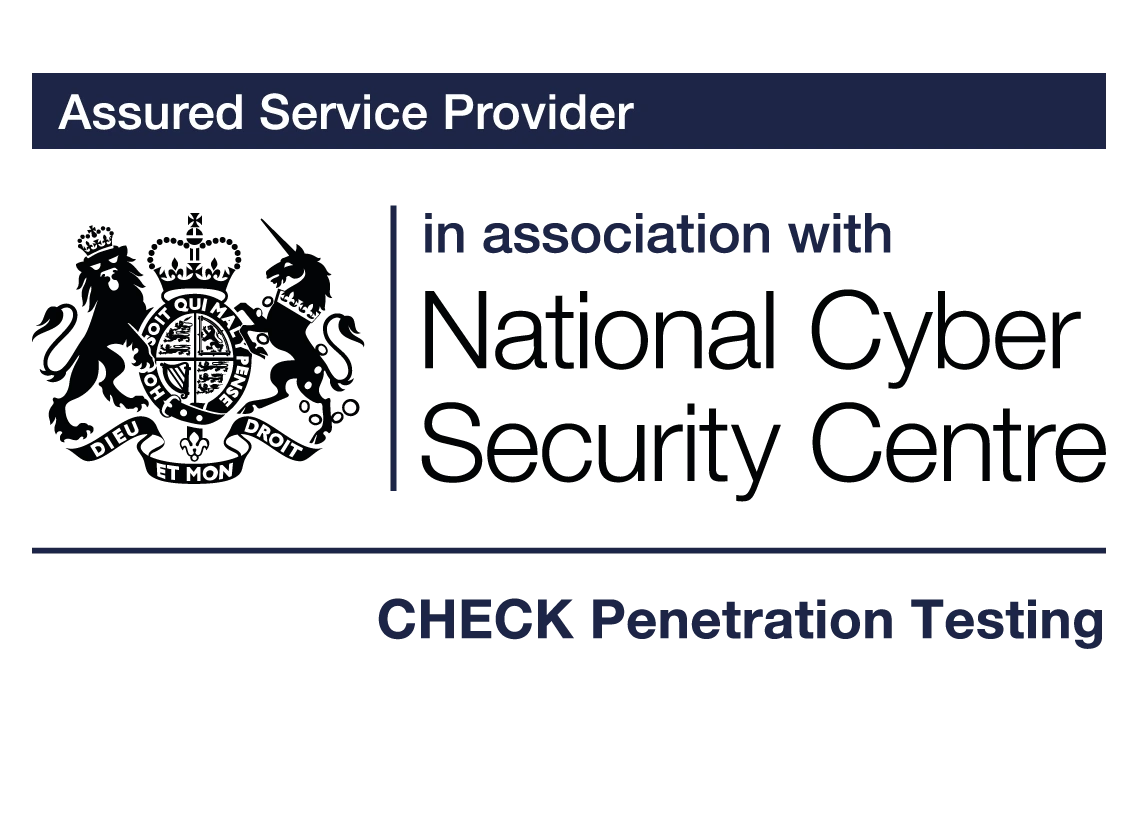IoT Penetration Testing
In the age of digital transformation, the Internet of Things (IoT) stands at the forefront, driving unparalleled innovation and convenience. But as we surge ahead with connected devices, ensuring their security becomes paramount. Our in-depth IoT Penetration Tests help fortify the very backbone of this digital age, ensuring your devices remain impervious to cyber threats.
The Expanding IoT Universe
As the IoT universe expands, it brings a myriad of opportunities and, unfortunately, vulnerabilities. From smart homes and wearables to advanced manufacturing systems, every IoT device is a potential gateway for cyber attackers.

Why IoT Security is Crucial
The vulnerability of a single IoT device can lead to:
- Data Breaches: Unauthorized access can compromise personal and corporate data.
- Device Malfunctions: Tampered devices can malfunction, causing operational disruptions.
- Network Infiltration: Unsecured devices can be a launchpad for broader network attacks.
ProCheckUp's Advanced IoT Laboratory
Positioned at the cutting edge of technology, our IoT laboratory stands equipped to tackle the emerging challenges presented by connected devices. Beyond merely identifying risks, we take pride in offering holistic assurance for your IoT functionalities.

Our Comprehensive IoT Testing Methodology
IoT types.
- Embedded Devices: This encompasses hubs, smart light bulbs, motion sensors, smart switches, and other connected devices.
- Software Layer: After assessing the hardware, we delve into the software. This includes firmware on the device, its companion mobile applications, and cloud components.
- Radio Communications: Ensuring the security of communication methods such as Cellular, Wi-Fi, Bluetooth Low Energy, Zigbee, Z-Wave, and more..
Mapping the Attack Surface
Understanding the device's architecture is the stepping stone for our approach. It allows us to tailor our tests based on priority, ensuring a comprehensive security review.
Hardware Analysis:
- External Analysis: Evaluating external communications including Cellular, Wi-Fi, Bluetooth Low Energy, Zigbee, and Z-Wave.
- Internal Analysis: Inspecting internal interfaces like USB, Serial, JTAG, and SPI.
- Gaining Shell Access: We employ advanced techniques, ranging from Ethernet and Wireless Exploitation to UART and JTAG Exploitation, to ensure robust shell access security.
Firmware Security Analysis:
From procuring the firmware to examining it for hardcoded secrets, our experts leave no stone unturned. We also emphasize the significance of preventing backdoor vulnerabilities in the firmware.
Embedded Device Exploration:
Hardware forms the physical basis of any IoT device. We delve deep to identify and rectify vulnerabilities at this core level.
- External Analysis:Evaluating external interfaces like Wi-Fi, Bluetooth, and cellular connectivity for security gaps.Checking the robustness of device-to-device communications.
- Internal Analysis:Understanding the security of interfaces like USB, Serial, JTAG, and SPI.
Identifying potential access points for malicious entities and ensuring they are sealed off.
Gaining Comprehensive Device Control
Shell Access Techniques:
Gaining legitimate control of a device’s core is essential in understanding potential illicit access points.
- Hardware Analysis:Pinpointing weaknesses in wired communication channels.
- Wireless Exploitation: Tools like HackRF, KillerBee, and Ubertooth are utilized to assess wireless communication vulnerabilities.
- USB Exploitation: Understanding potential threats from devices like PoisonTap, BashBunny, and Facedancer21.
- UART Exploitation: Recognizing connections, determining baud rates, and simulating unauthorized access to gauge device resilience.
- I2C/SPI Exploitation: Ensuring data integrity when reading/writing to EEPROM.
- JTAG Exploitation: Ensuring the security of connections, protecting memory contents, and ensuring the safe execution of binaries.
- Firmware: The Bridge Between Hardware and Software
Backdoor Threats in Firmware:
Firmware can often be an entry point for malicious entities if not correctly secured.
- Integrity Checks: Ensuring the firmware has not been tampered with.
- Signature Validation: Confirming the authenticity of the firmware source.
A Deep Dive into Software Layers
Software forms the soul of IoT devices. Our reviews ensure this soul remains untainted.
- Auditing the File System and Programs: Ensuring software elements adhere to industry security standards and best practices.
- User Interface Reviews: Whether mobile, web, or local, ensuring every touchpoint is secure
- Data Store Security: Ensuring that where data rests, it remains secure.
- Cloud and Network Analysis: Every external touchpoint is a potential vulnerability. We ensure these remain breach-proof.
Ensuring Binary Security:
- Analysis and Exploitation: It's not just about spotting vulnerabilities; it's about understanding them to safeguard against them.
- Disassembling & Emulating: Breaking binaries down to understand their function and potential security gaps.
Security Assessments: Once vulnerabilities are spotted, potential attacks are simulated to truly gauge their threat level.

Radio Communication Security:
At the heart of IoT lies seamless communication between devices. Ensuring the safety of these communication channels is paramount.
Radio channels that we examine Include:
- Cellular Communications: Checking for vulnerabilities in cellular connectivity of devices.
- Wi-Fi: Assessing the strength and encryption of Wi-Fi connections.
- Bluetooth Low Energy: Scrutinizing the security of short-range connections to ensure data privacy.
- Zigbee and Z-Wave: Evaluating the resilience of these low-power radio protocols that often control smart home devices.
Embedded Device Firmware Analysis:
Obtaining the Firmware:
- Downloading from official sources.
- Extracting directly from the device.
- Sniffing during updates or patch installations.
- Reversing engineering from applications.
- Extracting Firmware Insights:
Manual inspection for initial vulnerability identification.
Employing automated tools like 'binwalk' for deeper analysis.
Seeking Hardcoded Secrets:
Using 'firmwalker' and other tools to discover potential backdoors, hardcoded credentials, and other security risks.
Software Layer Scrutiny
- User Interface Audit: Every touchpoint, be it Web, iOS, Android, API, or thick client-based, is assessed to ensure a safe user experience.
- Firmware Release Diffing: Comparing firmware versions to identify security improvements or potential new vulnerabilities introduced in updates.
- Key Management Audit: A crucial step where we ensure encryption keys, authentication keys, and other critical security tokens are stored and managed safely.
- Data Storage Review:Ensuring that data, both at rest and in transit, is encrypted and stored securely.
- Cloud & Network Audit:Every external connection point, including cloud servers and supporting network structures, is reviewed to protect against potential breaches.
Binary Level Examination
- Binary Analysis: Beyond just running binaries, we disassemble and emulate them to understand their inner workings and potential vulnerabilities.
- Exploitation Techniques: Identifying vulnerabilities is just the beginning. Our team also simulates attacks, sets breakpoints, and crafts potential exploits to validate and highlight areas of concern
Continuous Security for Evolving Threats
The world of IoT is dynamic, with new devices and threats emerging rapidly. Our team remains perpetually updated, ensuring your security reviews encompass the latest vulnerabilities and protection techniques.
Bespoke Security Strategies
After our in-depth review, we provide tailored recommendations that align with your specific IoT landscape. Whether it's patching discovered vulnerabilities, enhancing encryption, or augmenting physical security measures, our strategies are crafted just for you.
Embark on a Safer IoT Journey with ProCheckUp
Harness the boundless potential of IoT without the associated security concerns. Reach out to us to fortify your connected landscape.
Download our sample IOT report.
For More Information Please Contact Us

ACCREDITATIONS






